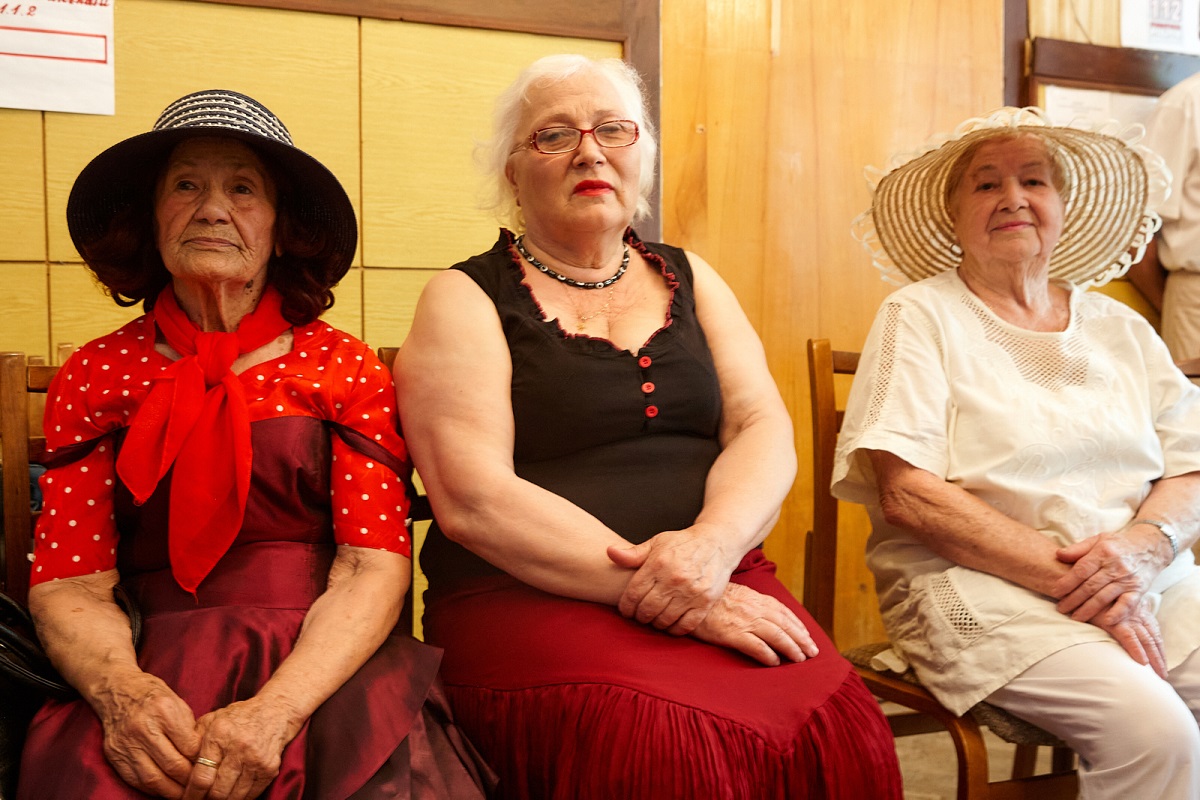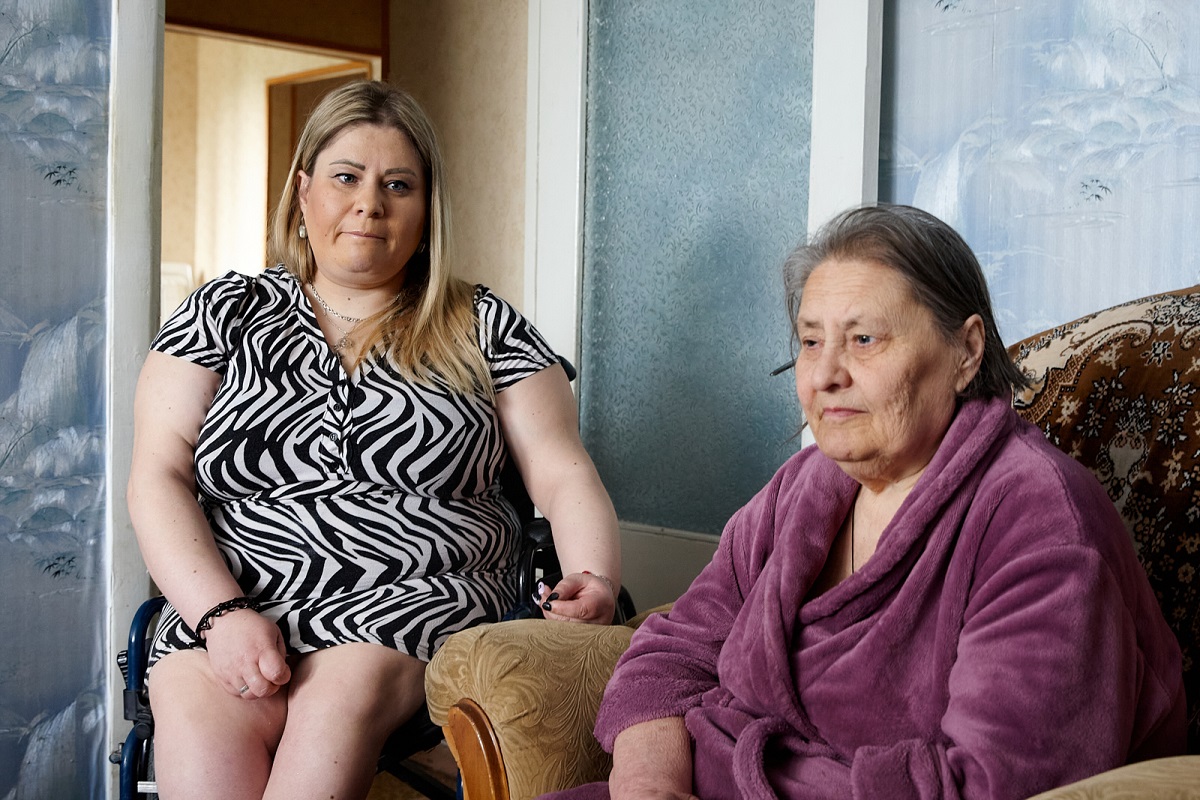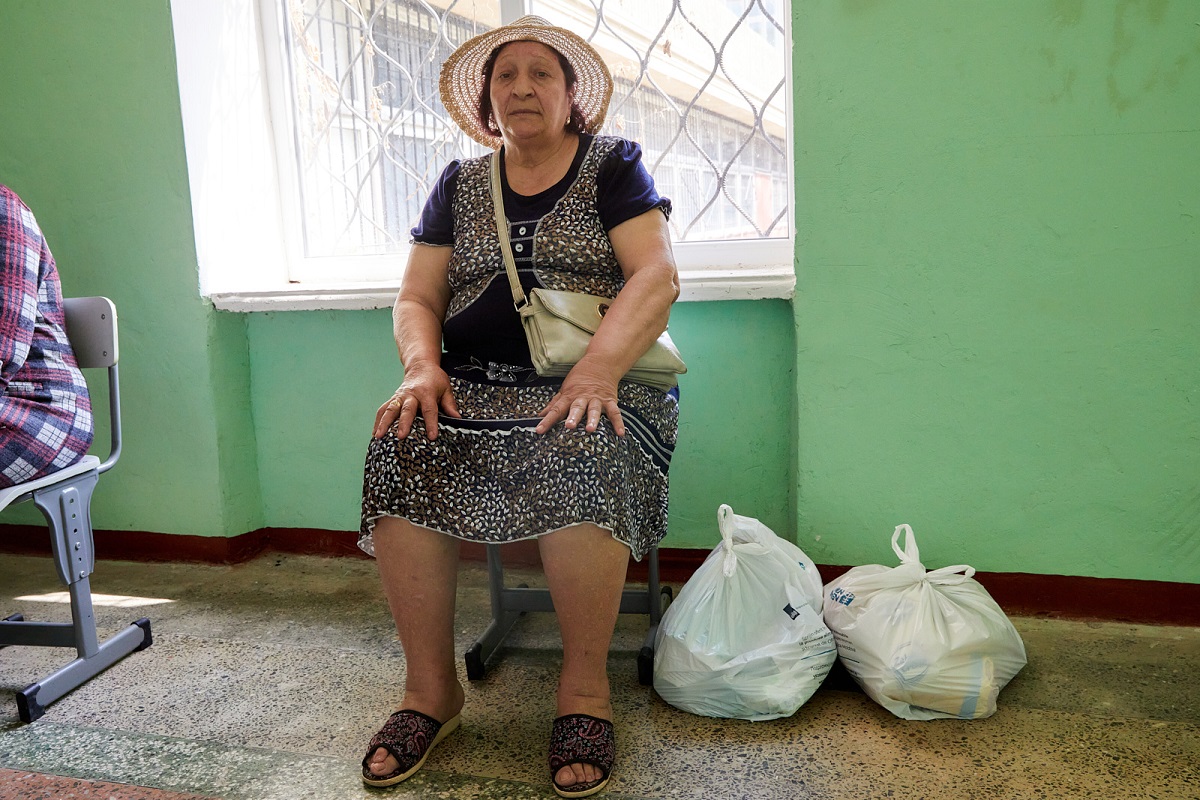Women from vulnerable groups benefited from support meant to increase their resilience during the multiple crises
Date:
The COVID-19 pandemic, but also recent multiple crises, led to a series of changes and effects on the population, all of these reflecting on women and men differently, both economically and socially. This is also determined by the fact that women and men have different roles both in society and family.
In order to improve resilience of the most vulnerable groups against multiple crises and their aftermaths, UN Women initiated, at the end of 2021, the „Increasing the access of vulnerable women to food and essential supplies” project, in collaboration with the Ministry of Labour and Social Protection, financed by the Embassy Office of the Kingdom of the Netherlands in the Republic of Moldova.
As a result, over 4700 women, including from rural areas, women with disabilities, elderly women, Roma women, women affected by violence, single mothers, women with low or no incomes, women living with HIV, sex workers, and their dependents, during May – June 2022 received a donation of food and hygiene supplies. More than 38,000 food supplies, 4700 packages with hygiene products and 208 personal protection kits were distributed in over 34 localities across the country, on both banks of the Dniester River. The support is provided based on the needs collected from 40 organizations in the field, with the support of the National Coalition "Life without Violence in the Family" and the Platform for Gender Equality.

One of the beneficiaries, Maria Olaru, is 84 years old. Despite her advanced age, she leads an active lifestyle- she enjoys sports, dances and sings in a veterans' club in Balti city. “I like singing very much. This is the best rest for me”, Maria says.
She had been working at the bus station from Balti all her life. She started from the position of a cashier, shortly becoming a director. “My husband died long ago. I have a daughter and a son, whom I have adopted when they were little kids. My children help me as much as possible but their life is very challenging as well”, Maria says.
During the pandemic, Maria has been infected with coronavirus but she didn’t go to the hospital, she was treated at home. “It was a very hard time for me. For over a month, I was not sure I would survive”, Maria shares.
Maria is one of the beneficiaries of the “Increasing access of women from vulnerable groups to food and essential supplies” project, and she shared to the UN Women team how useful those food and hygiene supplies were.

Another Balti inhabitant is Lilia Cealpuh. Lilia is a wheelchair user since birth, and she calmly said: “It was a medical error. I have been diagnosed with a spinal cord tumor at birth, and after a failed back surgery I can’t walk anymore.”
In order to have a profession, Lilia attended a makeup course, working at home for many years. “Thanks to this activity I had a low but stable income”, Lilia says. “However, everything stopped because of the pandemic, as there was a period when people stopped going to weddings and holidays, and I have no income streams at this point”. The situation worsened 6 months ago, when Lilia’s mother had a stroke. From that moment, Lilia had to be always at home to take care of her mother. “Now we live on my mother’s pension and social allowances, so we are deeply grateful for this initiative. These products will be helpful for us for a period of time.”

One more beneficiary of the project is Maria Mircea from Mingir village, Hincesti district. Maria is a part of Roma community, and she told she had been working all her life. She built a house and raised 3 sons, now being a pensioner. “My pension is enough for basics only. I think weather I have meals to put on the table every day. Sometimes I have to limit myself to potatoes and bread. My problems have intensified during the pandemic: there were days when I was not allowed to leave my yard and I had nothing to eat. But the biggest pain for me was to lose one of my sons as a result of complications of COVID-19.”
Today, Maria is waiting for good times to come. She added that “For some people, this aid can seem insignificant, but for me it is a huge support during such difficult times.”
According to the country report on gender equality in the Republic of Moldova, women are more likely to face poverty. These risks have 3 main causes: (i) unequal share of family responsibilities (raising children and taking care of relatives with special needs), activities mostly women are involved in, this leading to a partial or full withdrawal from the labour market, as well as from social and educational activities (ii) lower employment rate among women, especially among mothers with preschoolers, this leading to limitations in benefiting from advancing a career and equal pay, and finally (iii) pension inequality, this highlighting financial limitations of elderly women.
The risk of poverty is higher among women from vulnerable groups. The above-mentioned evaluation highlights the situation of women from rural areas, of elderly people, with disabilities and those belonging to minority groups.
This intervention is a part of continuous efforts of UN Women to support women’s empowerment.